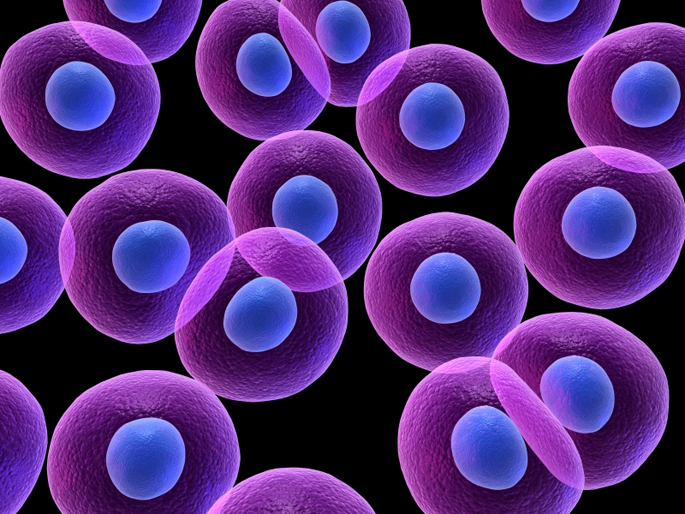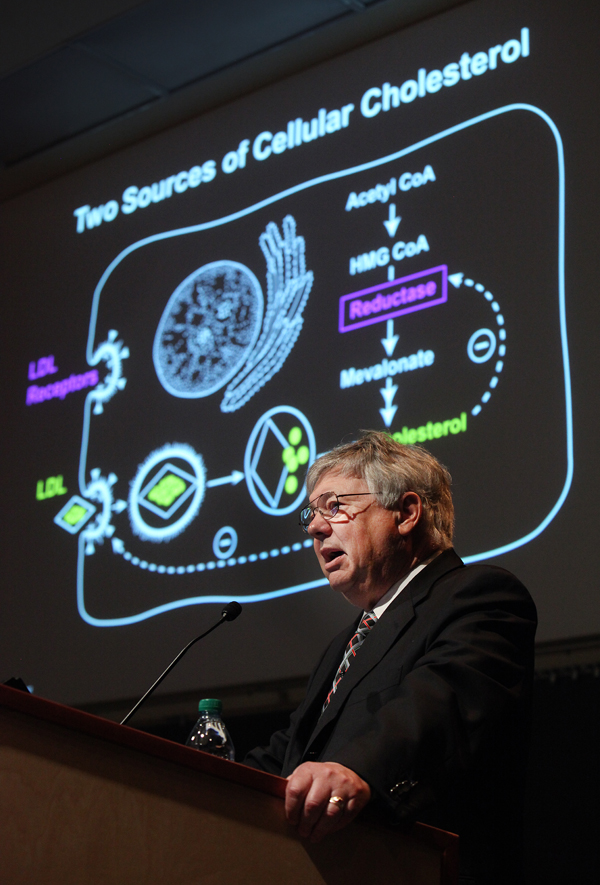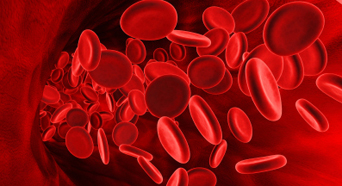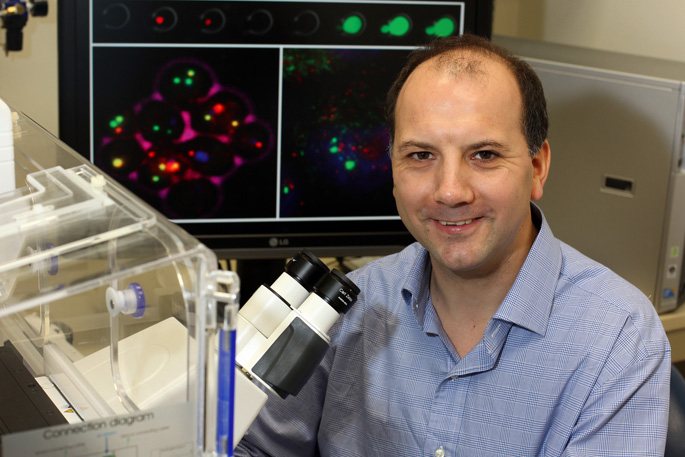Molecular Physiology And Biophysics
-

How ABC transporters move molecules
New views of how transporters move molecules across cell membranes are key to understanding how these proteins impact tumor cell drug resistance and inherited diseases such as cystic fibrosis. Read MoreJun 13, 2014
-

New view of neurotransmitter transport
Dynamic measurements of the bacterial leucine transporter shed light on the transporters that play roles in neuropsychiatric and addiction disorders. Read MoreApr 24, 2014
-

Matrix remodeling and insulin resistance
The extracellular matrix that surrounds cells plays a role in the development of insulin resistance. Read MoreApr 10, 2014
-

Imaging guides Alzheimer gene search
Using imaging data, Vanderbilt researchers discovered an association between a gene pair and brain changes in Alzheimer’s disease. Read MoreFeb 28, 2014
-

Obesity sends immune cells to the brain
Obesity causes peripheral immune cells to move to the brain, where they may contribute to inflammation and the pathophysiology of obesity. Read MoreFeb 12, 2014
-

Searching for beta cell stimulators
Vanderbilt researchers describe a new technique for identifying factors that stimulate the proliferation of pancreatic beta cells – factors that might offer therapeutic options for diabetes. Read MoreJan 13, 2014
-

Mitochondrial mutations not random
A study of mitochondrial DNA mutations suggests they result from a process that selects for particular mutations in certain tissues. Read MoreNov 25, 2013
-

Vision research group names VU graduate student to its board
Vanderbilt graduate student Megan Capozzi has been named the Member-In-Training Board of Trustee to the Association for Research in Vision and Ophthalmology (ARVO). Read MoreNov 14, 2013
-

Transporter linked to autism risk
Vanderbilt University investigators for the first time have linked a non-inherited, de novo mutation in the dopamine transporter to autism spectrum disorder (ASD). Read MoreSep 19, 2013
-

‘Yo-yo dieting’ inflames fat tissue
Gaining and losing weight during “yo-yo dieting” may contribute to an exaggerated immune response in fat tissue that increases metabolic dysfunction more than steady weight gain alone. Read MoreAug 9, 2013
-

The Crucible of Science
The strength of Vanderbilt biochemistry, especially in the area of metabolism and diabetes, has a lot to do with a brilliant husband-and-wife research team escaping the rise of Nazism in the early 1920s. Read MoreJul 5, 2013
-

Matrix member key to insulin resistance
A component of the extracellular matrix that surrounds cells plays a role in insulin resistance and may be a good therapeutic target. Read MoreJun 6, 2013
-

John Wikswo at TEDx Nashville: The Homunculi and I
John Wikswo, Gordon A. Cain University Professor of biomedical engineering and A. B. Learned Professor of Living Physics, presented "Homunculi and I: Lessons from building organs on chips" at TedX Nashville April 6, 2013. Read MoreMay 6, 2013
-

Nobel laureate describes decades-long pursuit of cholesterol regulation
Nobel laureate Michael Brown, M.D., describes his quest to understand cholesterol during the 2013 Earl W. Sutherland lecture. (Photo by Susan Urmy) Cholesterol is a tricky molecule to keep in balance. It’s a building block for the cell membrane and is required for cell growth and survival. Read MoreMay 2, 2013
-

Discovery Lecture explores brain’s sensitivity to insulin
Diabetes has a big impact on the brain. Read MoreFeb 28, 2013
-

Linking oxygen, iron and red blood cells
The HIF oxygen-sensing pathway and its responses to low oxygen may be targeted for treatments of anemia and disorders of iron balance. Read MoreFeb 6, 2013
-

Genes, nutrients interact to shape traits
A new study identifies interactions between genes and nutrients that may participate in determining levels of cholesterol and triglycerides. Read MoreDec 12, 2012
-

Research becomes personal for Delpire
Eric Delpire, Ph.D., professor of Anesthesiology, Molecular Physiology and Biophysics and director of the Anesthesiology Basic Science Research Division, has spent the past 15 years developing genetically altered mice for use in scientific research, and he now knows the value of his research in a very personal way. Read MoreDec 6, 2012
-

Setting traps to probe gene function
A new method for creating genetic mutations that can be activated at certain times or in specific tissues will enable studies to probe gene function. Read MoreOct 18, 2012
-

VU recruit’s work lights up genetic ‘dark matter’
They’ve been called “junk DNA” and genetic “dark matter” — the long segments of the human genome (98 percent of it) that do not encode protein. Read MoreOct 11, 2012